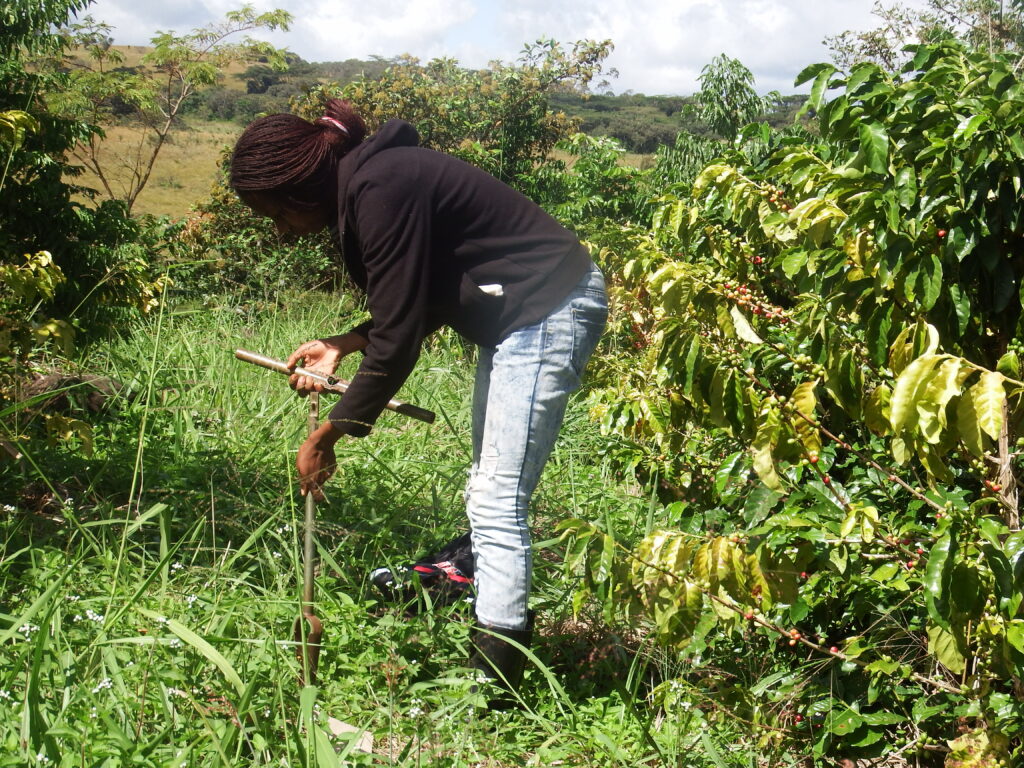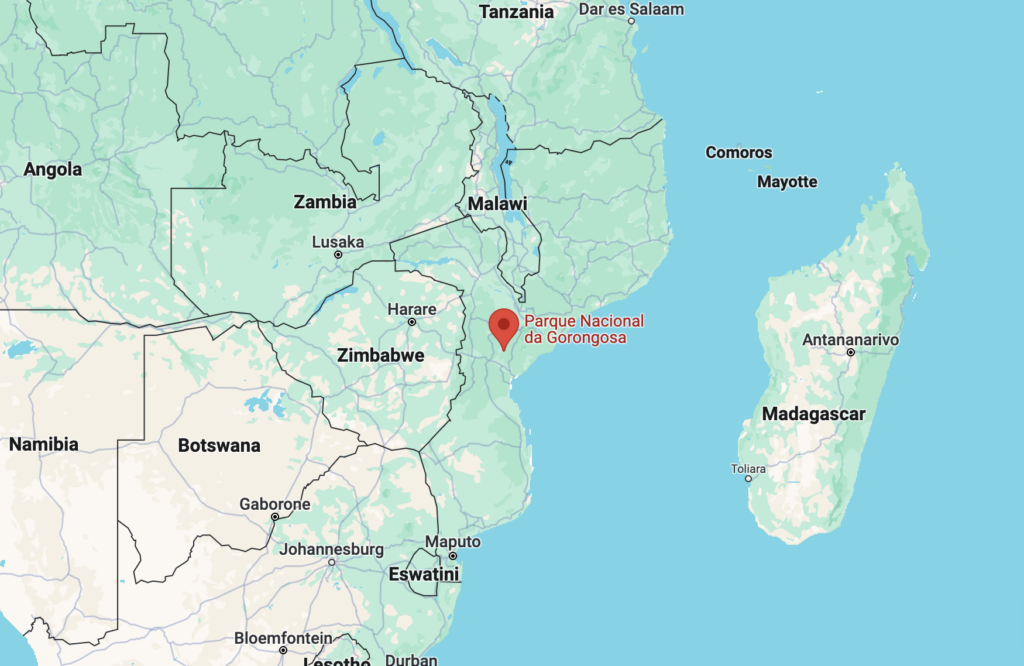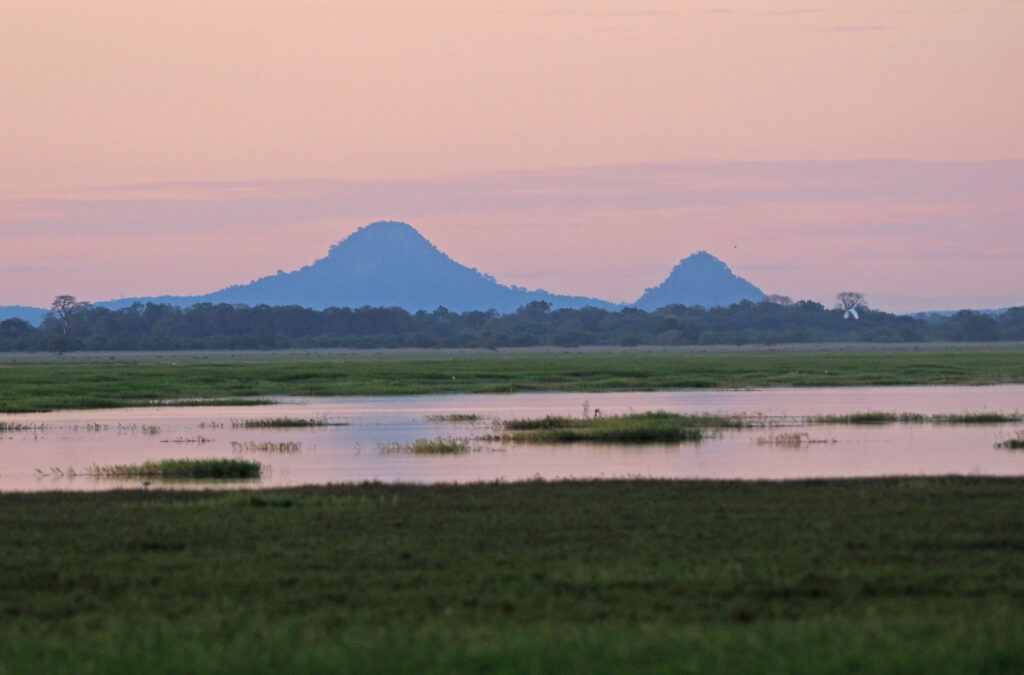How One Mozambican Researcher Hopes to Mitigate the Climate Crisis through Coffee
Maria Tomas Cossa is mitigating the impact of climate change through her research on coffee agroforestry systems and carbon sequestration.
Published May 28, 2024
Maria Tomas Cossa is a marine biology graduate with a Master’s in Conservation Biology. She is a member of the International Science Reserve and a prominent researcher at Mozambique’s Bazaruto Center for Scientific Studies.
Currently, she is working on climate change mitigation through her pioneering research on coffee agroforestry systems and looking into the potential to store carbon in the soil. Maria’s commitment to sustainability and problem-solving on climate change is not just a professional pursuit, but also a personal passion.
Maria recently spoke to our team about why she joined the International Science Reserve, and the role she believes scientists can play in her region to help prepare for climate-related disasters.
What inspired you to study biology, and specifically climate change mitigation?
As I grew up in Mozambique, I became increasingly aware of the pressing issues facing our planet, particularly the rapid changes occurring in our climate due to human-induced factors such as greenhouse gas emissions, deforestation, and pollution. For example, the average temperatures in Mozambique have increased 1.5 – 2⁰C between 1961 and 2010. With this, we face so many storms nowadays that destroy the coast and ecosystems such as dunes, seagrass, coral reefs and mangroves. The realization that our actions were driving significant shifts in ecosystems, leading to biodiversity loss, extreme weather events, and disruptions in global patterns, deeply troubled me.
Moreover, the urgency of climate change and its profound implications for future generations. This motivated me to actively seek ways to contribute to mitigation efforts. Whether through research, education, advocacy, or practical interventions, I felt compelled to make a positive impact and help foster a more sustainable relationship between humanity and the planet.

Tell us a little more about your pioneering research on coffee agroforestry and carbon sequestration.
In Mozambique, the tropical Afromontane forest of Mount Gorongosa in Gorongosa National Park is home to coffee agroforestry systems that were developed specifically to contribute to agriculture, restoration, and climate change mitigation. In my research, I am working to gain a better understanding of the carbon storage capacity of soils in coffee agroforestry systems, and particularly how planting coffee with native tree species will help develop methods that support these climate benefits.
Mount Gorongosa contains fragments of natural forest alongside fallow agricultural land and a restoration program using shade-grown coffee. Coffee has been planted under native shade trees since 2014, and as the coffee ages out of production, the land will be left with a well-developed canopy of native species.
This is the first shade grown coffee project in Mozambique, and before this study, there were no data on carbon stocks on Mount Gorongosa. The main objective of the research was to study the contribution of coffee agroforestry systems on Mount Gorongosa to the soil’s carbon storage.

What inspired you to join the ISR? Why should more researchers from your region join the ISR?
I joined with the intention of connecting with other national and international scientists and researchers who have been working towards the conservation of biodiversity. In my country, we lack a lot of data that can help in decision making and being in such a wide network of researchers can open up opportunities for collaboration.
What role can biologists play in helping us all better prepare for and respond to climate-related disasters?
Biologists can play a multifaceted role in helping better prepare for and respond to climate-related disasters by contributing scientific knowledge, monitoring ecosystems and biodiversity, developing early warning systems, assessing risks and vulnerabilities, and informing policy and management decisions. Through collaborative efforts and a deep understanding of ecological processes, biologists can contribute to building more resilient and sustainable communities in the face of climate change.

What gives you hope or motivation to keep doing your work, given all the challenges we face today on climate change?
What motivates me is the fact that I know that there is still some hope of reversing the current situation on our planet, although there are many challenges. I have also seen cases of success in changing attitudes and that encourages me a lot.
For example, here in Mozambique we have mangrove and seagrass restoration projects where communities are the key elements and lead these projects, a large part of the mangrove is being recovered and with that other ecosystem services and various fishing resources that are of extreme importance for the coastal communities. This success story encourages me to continue this fight involving all sectors, from community to government.
Want to be part of this impactful network? Learn more about the ISR and the Academy.
